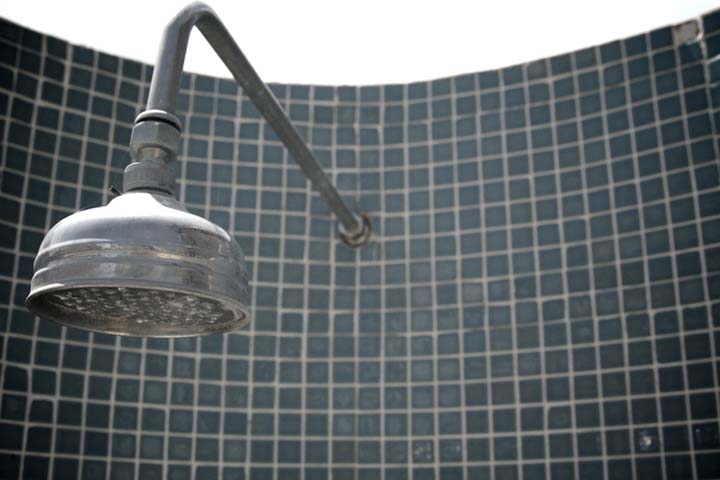Advertisement
Are We Really Too Clean?
ResumeWith guest host John Donvan.
A new take on the great unwashed: Backed by new research into good germs, some Americans are putting the soap away.

The signs say it all. Please shower before entering the pool. All employees must wash hands before returning to work. Or to go more Biblical: Cleaniness is next to Godliness. Clean is a social value. It's the American way. But is there such a thing overworrying the clean thing? Or, is clean good, but are we going about it in the wrong way? Science is beginning to suggest possibly yes to both questions. While socially, more folks are skipping the soap, the shampoo, the deodorant, and everything that we tend to define as cleansing. And how popular are they after that? Or. are they onto something? This hour Up On Point: Hygiene hijinks. Rethinking clean.
-- John Donvan
Guests
Julia Scott, journalist and radio producer. Editor of the forthcoming book, "Drivel: Deliciously Bad Writing By Your Favorite Authors." (@juliascribe)
Elizabeth Grice, assistant professor of dermatology at the University of Pennsylvania's Perelman School of Medicine. Principal investigator in the school's Grice Lab.
James Heywood, director of AO Biome, a Cambridge-based startup bacterial therapy company. (@jamie_heywood)
From The Reading List
New York Times: My No-Soap, No-Shampoo, Bacteria-Rich Hygiene Experiment — "My skin began to change for the better. It actually became softer and smoother, rather than dry and flaky, as though a sauna’s worth of humidity had penetrated my winter-hardened shell. And my complexion, prone to hormone-related breakouts, was clear. For the first time ever, my pores seemed to shrink. As I took my morning “shower” — a three-minute rinse in a bathroom devoid of hygiene products — I remembered all the antibiotics I took as a teenager to quell my acne. How funny it would be if adding bacteria were the answer all along."
CNN: Minnesota issues ban on antibacterial ingredient -- "The health effects of triclosan for humans are still unclear. Some studies suggest that the chemical could be linked to antibiotic resistance, but evidence is mixed, and the Environmental Protection Agency says more research is needed to evaluate risk. There is some evidence that long-term exposure to some ingredients in antibacterial products, including triclosan, "could pose health risks, such as bacterial resistance or hormonal effects," according to the FDA."
San Francisco Chronicle: Pfizer joins Second Genome for microbiome study — "Scientists have developed several theories about the roles that different gut bacteria play in the ways that the body breaks down and uses nutrients and vitamins, processes they suspect relate to metabolic disease. For example, microbiome transplant studies have suggested that the introduction of specific microbes can effectively drive weight loss or gain."
This program aired on May 30, 2014.